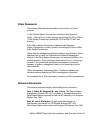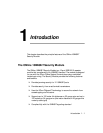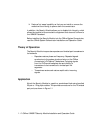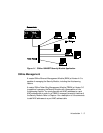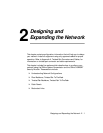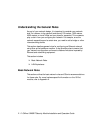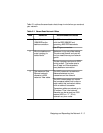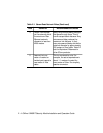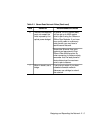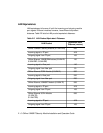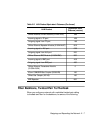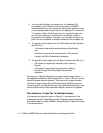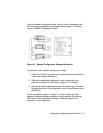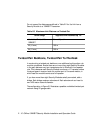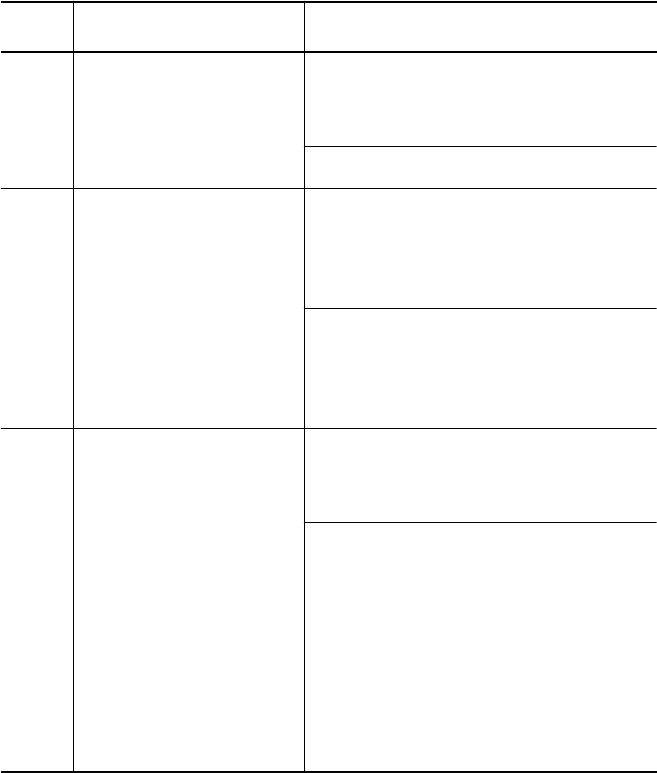
Designing and Expanding the Network 2 - 3
Table 2-1 outlines the seven basic rules to keep in mind when you construct
your network.
Table 2-1. Seven Basic Network Rules
Rule Definition Recommendations/Notes
1 If possible, use
10BASE-FB as the
backbone medium.
Use 62.5 micron cable to conform
with the IEEE 10BASE-F and
upcoming ANSI FDDI standards.
Use ST-type connectors.
2 Wire the backbone in
a star topology to
isolate faults.
Make sure to lay extra fiber cables.
The extra cost is small and you will
find you need them as your network
grows.
The star topology conforms to FDDI
wiring as well -- just make sure to
run at least two fiber strands to
every backbone connection.
3 The maximum Fiber
Ethernet network
diameter is 4200
meters of fiber cable.
The 4200 meters is the maximum
distance between any two
transceivers on the network.
The 4200 meters does not include
the transceiver cable (that is, drop or
patch cable) that connects a device
with an external transceiver.
Transceiver cables can extend up to
50 meters. Thus, total network
diameter can be as much as 4300
meters (4200 m + 2 * 50 m)
between any two nodes.



